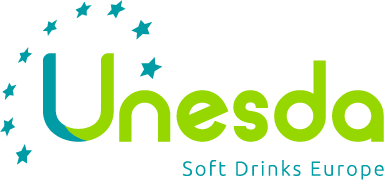European Soft Drinks Sector Commits to Reduce Added Sugars by a Further 10%

The European soft drinks industry[1] has announced it will reduce added sugars in its products by a further 10% by 2020[2]. The commitment will be rolled out across Europe. This initiative responds to changing consumer preferences regarding sugar intake and calls from Member States and the European Commission for a coordinated approach to reformulation and sugar reduction. The sector – which includes well-known brands such as Coca-Cola, Pepsi and Orangina – will innovate, reformulate, use smaller pack sizes and encourage consumer choice towards low and no calorie drinks to achieve its ambitious target.
The soft drinks sector is an early mover in added sugars reduction with its journey beginning in the 1970s when the first no sugar and no calorie soft drinks were introduced. In soft drinks, reduction in added sugars leads directly to reduced calories. The industry reduced sugar in still and carbonated soft drinks by 12% from 2000-2015[3], so the new commitment triples this pace by adding another 10% reduction over the next five years[4].
By joining industry forces at European level, the commitment has the merit of putting in place a Europe wide approach and impacting over 500 million consumers. The committed 10% is an aggregate and takes into account existing and new local industry pledges on sugar reduction, reflecting specific national diets and consumer preferences in the EU.
 The initiative addresses consumer preferences regarding sugar and calorie intake. It is also a response to the EU’s call for reformulation and sugar reduction across the food industry. The commitment supports the EU Roadmap for Action on Food Product Improvement Annex on Voluntary Reduction of Added Sugars and the with its 10% sugar reduction target agreed between Member States and the European Commission.
The initiative addresses consumer preferences regarding sugar and calorie intake. It is also a response to the EU’s call for reformulation and sugar reduction across the food industry. The commitment supports the EU Roadmap for Action on Food Product Improvement Annex on Voluntary Reduction of Added Sugars and the with its 10% sugar reduction target agreed between Member States and the European Commission.
The industry will achieve its target through increasing its efforts on reformulation and new product innovation – including by using low and no calorie sweeteners – and increasing the availability of smaller pack sizes to allow portion control and moderation. In addition, soft drinks producers will invest in the promotion of beverages with reduced or no sugar to actively encourage consumer choice towards low and no calorie products. Independent third party research will monitor progress, which will be shared with stakeholders.[5]
Stanislas de Gramont, President of UNESDA Soft Drinks Europe and CEO of Suntory Beverage and Food Europe, comments: “We welcome the EU’s policy approach to reformulation and sugar reduction which is based on partnership and allows us to deliver speed and scale. This 10% sugar reduction commitment represents a tripling of the pace of our efforts to date. We will need to employ a wide array of tools in order to achieve our ambitious target and we hope other food categories will follow suit in order to generate critical mass.”
1 UNESDA Soft Drinks Europe is the trade association representing non-alcoholic beverages such as carbonates, fruit based drinks and dilutables. Other categories such as bottled water, juices, milk-based or hot beverages are represented at EU level by other organizations. UNESDA represents 80% of the European soft drinks industry by value.
2 Metric is average content of added sugar per 100 ml.
3 Source: Canadean
4 The combined of reductions achieved and this new commitment will be 20% less sugars on average in 2020 compared to 2000
5 UNESDA will monitor its compliance with the new commitment through independent, third party auditors including Canadean www.canadean.com.

































